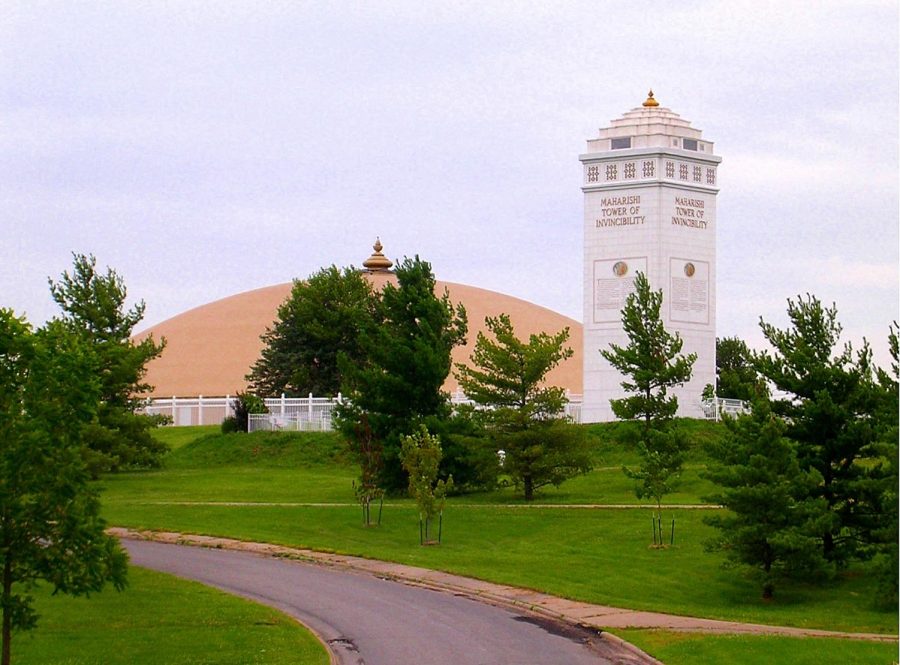Meditation and Self-Exploration at Maharishi University
December 12, 2017
The Maharishi University of Management and other schools of management have one stark difference: the former is about managing yourself and the latter about managing others.
Founded in 1973, Maharshi certainly doesn’t follow the typical mold: opting to have classes last for a month instead of year-long and requiring students to take yoga-intensive classes.
The school, located in Farfield, Ohio, hopes to teach students to, as it says on its website, live in “harmony with natural law.” To accomplish this goal, teachers and administrators use Consciousness-Based Education, a program developed by Maharishi Mahesh Yogi, the university’s founder.
“When the conscious mind expands to embrace deeper levels of thinking, the thought wave becomes more powerful and results in added energy and intelligence,” Yogi said.
There are two core facets of this type of curriculum: self-exploration and transcendental meditation.
In terms of self-exploration, each course is designed not only to teach the curriculum, but also teach about how what you are learning connects to the “deepest levels of [your] life.” By doing so, teachers hope to make students more aware of the impacts they have in each field.
The university hopes this self-exploration is continued through the transcendental meditation technique. Practiced for 20 minutes, twice a day, the technique is taught to students by a certified Transcendental Meditation teacher “shortly after [students’] arrival” to the University. The type of meditation is said to be completely different than other forms.
“[Unlike other forms of meditation,] The Transcendental Meditation technique involves neither concentration nor contemplation. It is a simple, natural procedure that effortlessly allows the mind to transcend, to experience transcendental consciousness — described by neuroscientists as a state of ‘restful alertness.’”
In addition, students are required to take the Development of Consciousness course, one that necessitates active practice of Transcendental Meditation for credit. Except, instead of being a year-round course, this and all other subjects are taken by students during a one month period. In an effort to decrease stress, there are no finals at Maharishi.
The university uses more than classes to help students reach their full potential: everything at Maharshi is about the student’s well-being. For instance, all meals are vegetarian and organic. Citing scientific studies, the university believes that a green diet free of pesticides is one of the reasons why students can more easily find themselves at the Fairfield campus. To administrators, good health is an important part of student’ consciousness.
As a result, various “natural health programs” are available for students to take advantage of. From teaching a breathing technique called Pranayama to a self-pulse assessment that promotes physiological balance, Maharishi centers around helping students understand their physical well-being.
The individual student is the most important part of Maharishi curriculum. It’s no wonder that all dorms are single-person, in a hope to give students the “quiet” and “privacy” they need sometimes.
Indeed, the entirety of the curriculum is designed as a step beyond traditional learning. While most college campuses teach just through lecture and seminars, Maharishi believes that learning is two-fold: external and internal. By finding ways to promote student’s individual internal creativity and well-being, Maharishi, counterintuitively, creates a strong community.
“When I visited the school, there was this sense of being home that was underlying everything I experienced and did,” student Stephanie Guarino said on the Maharishi website. “Being a student here now, I still feel the same way: the people here are so friendly and the energy is really lovely. I wouldn’t want to be anywhere else at this point in my life.”
The path to this meditation utopia isn’t easy though. With a 2016 acceptance rate of 37 percent, many Maharishi hopefuls were denied admission. But, for those lucky enough to get in, Maharishi hopes to instill lessons that last a lifetime, by simply focusing on how those lessons affect the individual.



